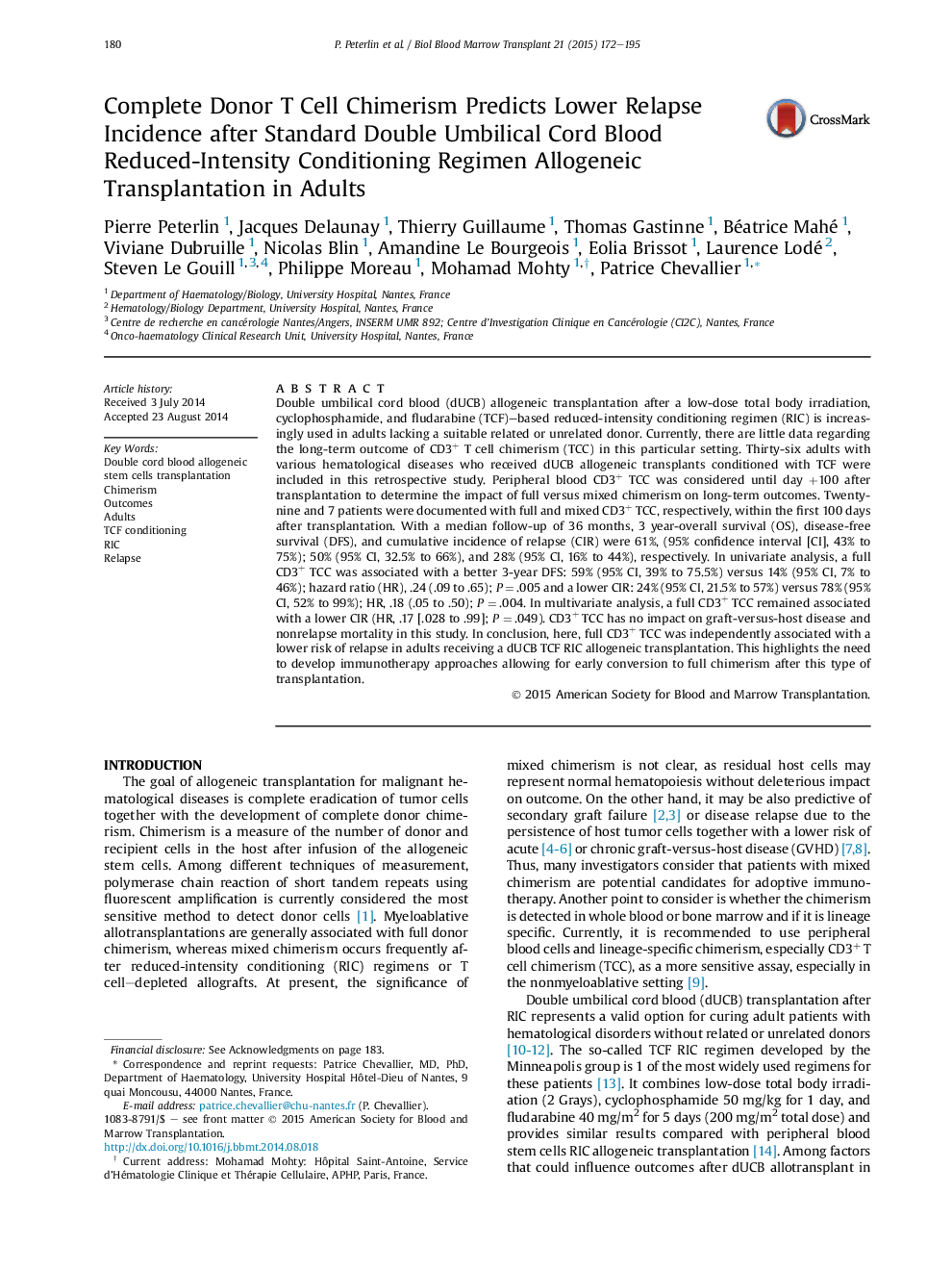| کد مقاله | کد نشریه | سال انتشار | مقاله انگلیسی | نسخه تمام متن |
|---|---|---|---|---|
| 2101879 | 1546272 | 2015 | 5 صفحه PDF | دانلود رایگان |

• Full CD3 T cell chimerism was independently associated with a lower risk of relapse.
• Younger age was independently associated with better overall survival.
• Three-year overall survival, disease-free survival, and cumulative incidence of relapse were 61%, 50%, and 28%, respectively.
Double umbilical cord blood (dUCB) allogeneic transplantation after a low-dose total body irradiation, cyclophosphamide, and fludarabine (TCF)–based reduced-intensity conditioning regimen (RIC) is increasingly used in adults lacking a suitable related or unrelated donor. Currently, there are little data regarding the long-term outcome of CD3+ T cell chimerism (TCC) in this particular setting. Thirty-six adults with various hematological diseases who received dUCB allogeneic transplants conditioned with TCF were included in this retrospective study. Peripheral blood CD3+ TCC was considered until day +100 after transplantation to determine the impact of full versus mixed chimerism on long-term outcomes. Twenty-nine and 7 patients were documented with full and mixed CD3+ TCC, respectively, within the first 100 days after transplantation. With a median follow-up of 36 months, 3 year-overall survival (OS), disease-free survival (DFS), and cumulative incidence of relapse (CIR) were 61%, (95% confidence interval [CI], 43% to 75%); 50% (95% CI, 32.5% to 66%), and 28% (95% CI, 16% to 44%), respectively. In univariate analysis, a full CD3+ TCC was associated with a better 3-year DFS: 59% (95% CI, 39% to 75.5%) versus 14% (95% CI, 7% to 46%); hazard ratio (HR), .24 (.09 to .65); P = .005 and a lower CIR: 24% (95% CI, 21.5% to 57%) versus 78% (95% CI, 52% to 99%); HR, .18 (.05 to .50); P = .004. In multivariate analysis, a full CD3+ TCC remained associated with a lower CIR (HR, .17 [.028 to .99]; P = .049). CD3+ TCC has no impact on graft-versus-host disease and nonrelapse mortality in this study. In conclusion, here, full CD3+ TCC was independently associated with a lower risk of relapse in adults receiving a dUCB TCF RIC allogeneic transplantation. This highlights the need to develop immunotherapy approaches allowing for early conversion to full chimerism after this type of transplantation.
Journal: - Volume 21, Issue 1, January 2015, Pages 180–184